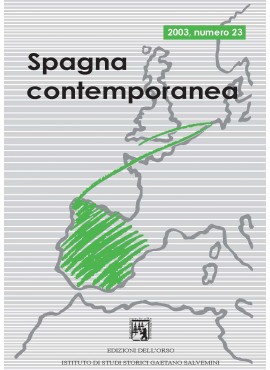La cuestión de la fiesta nacional durante la época socialista
Abstract
La cuestión de la fiesta nacional durante la época socialista
After the abolition in 1977 of the 18 of July as holiday, Spain formally did not a have a national holiday. On the one hand, King Juan Carlos had taken over the celebration of the Día de la Hispanidad with great enthusiasm favouring thus the choice of that date and, on the other, Socialist sectors were advocating to convert the Day of the Constitution into the national holiday. It was, however, the Socialist government that pulled through the final consecration of the 12 of October as National Holiday of Spain with a law in 1987 in spite of the uncomfortable connotations to conquest and colonisation. Among other reasons, the coincidence between the national holiday and the celebration of the Fifth Centenary of the discovery in 1992 favoured the choice of that date. As foreseeable, since 1992 the commemoration of the National Holiday has lost much of its echo.
Dowloads
Pubblicato
Fascicolo
Sezione
Licenza
Copyright (c) 2003 Istituto di studi storici Gaetano Salvemini, Torino

Questo volume è pubblicato con la licenza Creative Commons Attribuzione - Non commerciale - Non opere derivate 4.0 Internazionale.






